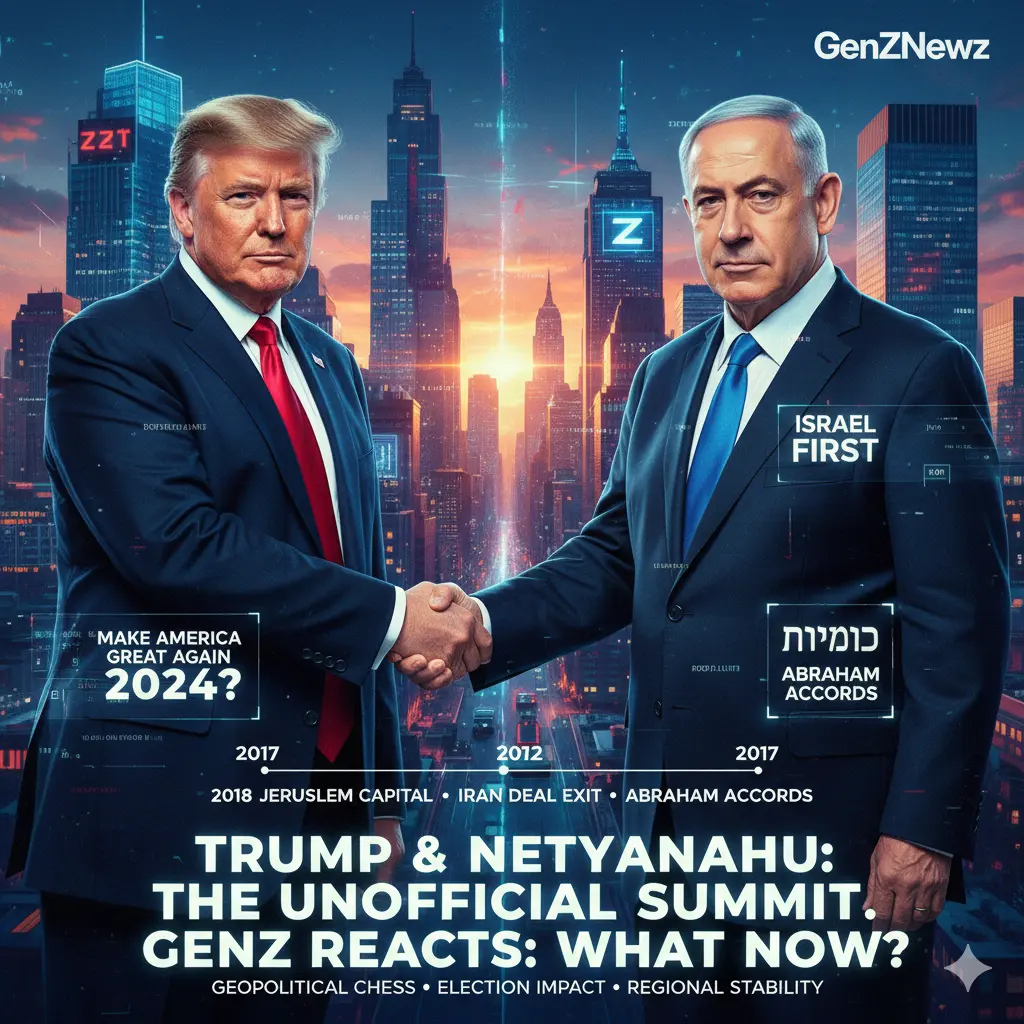During Trump's presidency, his administration and Netanyahu's government fostered an exceptionally close alliance. This period was marked by several pivotal moments that reshaped U.S.-Israel relations:
Recognition of Jerusalem as Israel's Capital: In 2017, Trump officially recognized Jerusalem as the capital of Israel and moved the U.S. embassy there, a move that was highly praised by Netanyahu and his supporters but drew criticism internationally and from Palestinians.
Withdrawal from the Iran Nuclear Deal (JCPOA): Trump's decision to exit the Joint Comprehensive Plan of Action (JCPOA) was strongly advocated by Netanyahu, who viewed the deal as a significant threat to Israel's security.
The Abraham Accords: Perhaps the most celebrated diplomatic achievement of the Trump administration in the Middle East, these agreements normalized relations between Israel and several Arab nations (UAE, Bahrain, Sudan, Morocco).
Netanyahu hailed these as a new dawn for regional peace and cooperation.
Why This Meeting Matters Now
Even out of office, Trump remains a dominant figure in the Republican Party and is widely speculated to be a contender for the 2024 presidential election. Netanyahu, despite recent political challenges, continues to be a central figure in Israeli politics. Their meeting could signal several things:
- Reinforcing the Alliance: For both leaders, a public meeting serves to reaffirm their strong historical bond and shared ideological perspectives on regional issues. This visual demonstration of solidarity can be powerful for their respective bases.
- Messaging to the Current Administrations: For Trump, it's an opportunity to underscore his continued influence on foreign policy discussions, particularly concerning Israel, contrasting with the current Biden administration's approach. For Netanyahu, it might serve as a subtle signal to the Biden administration about the enduring strength of conservative U.S.-Israel ties.
- Future Political Ambitions: If Trump runs and wins in 2024, a strong relationship with Netanyahu would likely see a return to policies similar to those of his first term. For Netanyahu, maintaining a connection with a potentially returning U.S. president is strategically vital for Israel's diplomatic standing.
Gen Z's Take: What Does This Mean for the Future?
Younger generations, often more globally aware and connected through social media, are likely to view this meeting through a critical lens, considering its broader implications for peace, human rights, and international relations.
- Geopolitical Stability: Many young people are concerned about stability in the Middle East. The close alignment between Trump and Netanyahu, while seen by some as a force for stability, is viewed by others as potentially exacerbating tensions, particularly regarding the Israeli-Palestinian conflict.
- Shifting U.S. Foreign Policy: Gen Z has witnessed significant shifts in U.S. foreign policy over recent years. This meeting highlights the potential for further swings depending on future election outcomes, raising questions about consistency and long-term strategy.
Human Rights and International Law: Discussions around Israel and Palestine often involve strong feelings about human rights, international law, and self-determination.
Young activists and commentators will undoubtedly scrutinize any statements or perceived implications of this meeting in that context.
In essence, today's meeting between Trump and Netanyahu is more than just a reunion of old allies. It's a political statement, a strategic maneuver, and a potential preview of future dynamics in U.S.-Middle East relations that will undoubtedly continue to be debated and analyzed by a generation deeply invested in the world's unfolding events.

Comments 0
No comments yet. Be the first to share your thoughts!
Leave a comment
Share your thoughts. Your email will not be published.